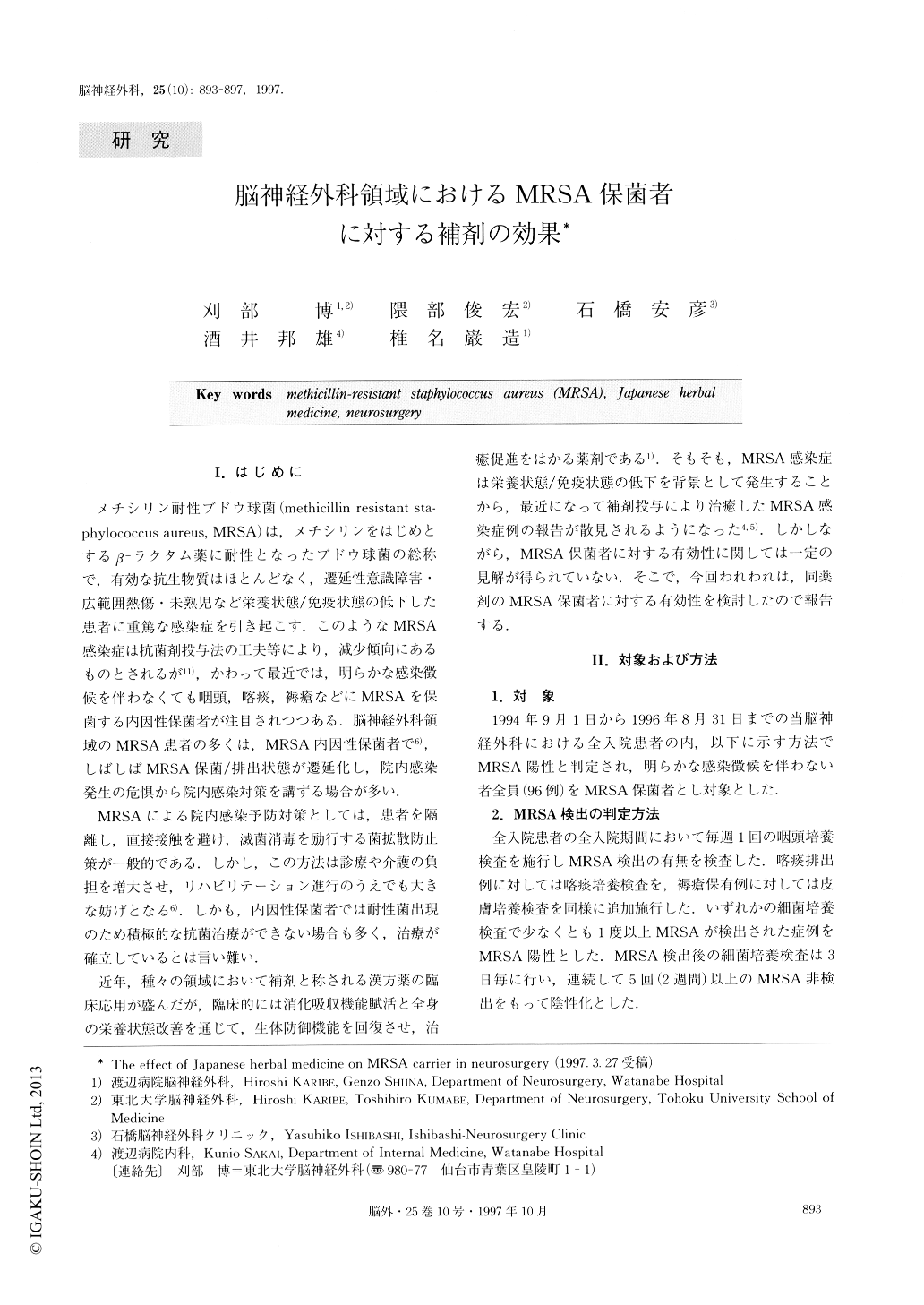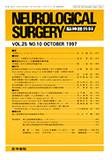Japanese
English
- 有料閲覧
- Abstract 文献概要
- 1ページ目 Look Inside
I.はじめに
メチシリン耐性ブドウ球菌(methicillin resistant sta—phylococcus aureus,MRSA)は,メチシリンをはじめとするβ—ラクタム薬に耐性となったブドウ球菌の総称で,有効な抗生物質はほとんどなく,遷延性意識障害・広範囲熱傷・未熟児など栄養状態/免疫状態の低下した患者に重篤な感染症を引き起こす.このようなMRSA感染症は抗菌剤投与法の工夫等により,減少傾向にあるものとされるが11),かわって最近では,明らかな感染徴候を伴わなくても咽頭,喀痰,褥瘡などにMRSAを保菌する内因性保菌者が注目されつつある.脳神経外科領域のMRSA患者の多くは,MRSA内因性保菌者で6),しばしばMRSA保菌/排出状態が遷延化し,院内感染発生の危惧から院内感染対策を講ずる場合が多い.
MRSAによる院内感染予防対策としては,患者を隔離し,直接接触を避け,滅菌消毒を励行する菌拡散防止策が一般的である.しかし,この方法は診療や介護の負担を増大させ,リハビリテーション進行のうえでも大きな妨げとなる6).しかも,内因性保菌者では耐性菌出現のため積極的な抗菌治療ができない場合も多く,治療が確立しているとは言い難い.
Since the management of methicillin-resistant staphy-lococcus aureus (MRSA) carriers is not established, these patients are isolated individually, limited in activ-ity, and delayed in rehabilitation. In this study, the effect of Japanese herbal medicine on MRSA carriers was examined. In the control group, MRSA carriers were isolated individually. In the treatment group, one of the Japanese herbal medicines “Juzentaihotou” or “Hotyuekkitou” was given in addition to isolating the patient. It was shown in cultures that Japanese herbal medicines had effectively changed MRSA carriers to negative. They also shortened the duration required to bring about the change of MRSA carriers to negative. As a result, the total number of MRSA carriers was re-duced. These results suggested that Japanese herbal medicines may be useful for the management of MRSA carriers in neurosurgery.

Copyright © 1997, Igaku-Shoin Ltd. All rights reserved.


